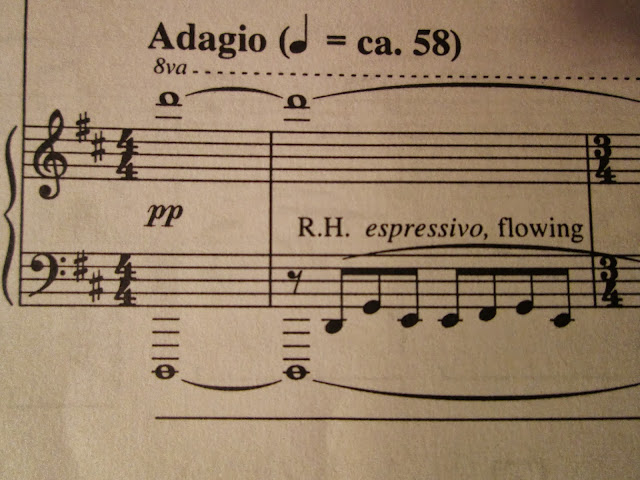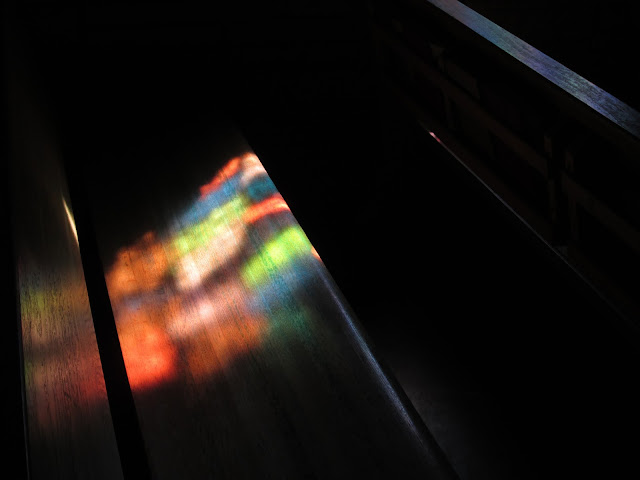[This is a post I began writing last year on December 26 and never finished because I caught the flu and was miserable for ten days, and then life began again in full swing, and I never came back to it, though I've kept the photos of the wrens on my desktop all year.]
It's the day after Christmas.
Or you can think of it as the second day of Christmas.
I like the second option, because I like the church calendar and the possibility of extending such a beautiful celebration over a longer period of twelve days.
Today, however, I was thinking about it being St. Stephen's Day to some people. John Michael Talbot wrote something about how the day of the first martyr follows right on the heels of the day of Jesus' incarnation. And how appropriate it is, because the birth of Jesus would be pointless without the death and resurrection of Jesus. Stephen didn't die because Jesus was born, but because Jesus lived a life and died a death that changed the cosmos and upset the status quo quite terribly--or wonderfully, depending on your perspective.
So, I was thinking about the death of Stephen, and reading a little about that led to my learning that in Ireland this is also called the Day of the Wren, for very strange and sad reasons. Apparently Irish legend says that a wren betrayed Stephen to those who then stoned him. This connects with an Irish legend about how a wren betrayed Irish soldiers to the Vikings around 750 A.D., on St. Stephen's Day. From this tradition then came the practice of killing wrens on this day with stones and even carrying them around the village tied to a stick to show them off.
A very strange and sad practice. Of course I'm sure that when the Vikings raided the Irish, that made for even more strange and sad experiences, and having a scapegoat of some sort may have helped the people with their grief in some way.
When I read this at first, part of me recoiled at the idea, and it almost made me not want to even write about St. Stephen's Day. What awful thoughts for the second day of Christmas.
But, actually, it fits well for what I have been thinking about quite a bit this Christmas. Our own Christmas plans were foiled by a blizzard, so we spent the day alone. Which was nice in some ways, but it meant a good deal of uncertainty, making a tough decision, and not being with family. In my mind, the words "alone" and Christmas" just don't belong in the same sentence, except for that one year when I was too sick to go to Grandmother's house and stayed home alone.
And Christmas always brings up the sadness of missing family who have died. (Especially in our family, as our grandparents' last name was Christmas.)
And we don't see family we used to be with every year, who cannot come for reasons related to distance, work schedules, other extended family, etc.
And this year I am thinking of clients who are going through difficult situations, for whom Christmas has probably been a very hard thing. And friends who have been in the hospital over Christmas.
And Christmas for me is always a sad reminder that we do not have children, or even a child; it brings up memories and feelings connected to that. Memories and feelings that manage to lie dormant most of the year rise up and intensify when so much emphasis is placed on children and families this time of year. Even though I don't watch TV, it's unavoidable, since most people send family photos rather than traditional Christmas cards anymore. Not a photo in a card, but a photo as a card, as if Christmas were simply about their family.
And for many people, myself not excluded, this holiday more than any other brings up difficuilt memories related to our own childhoods, partly because of the difficult experiences themselves and partly because of the crazy expectation our culture sets us up for us, that Christmas should somehow defy all the laws of ordinary life and be a wonderful day.
Kind of the way some people think of heaven. A priest friend of mine once asked, "What do people think? That when you die, God will give you a pill to swallow, and suddenly you will just get along with everyone and like them?" His point was that we must learn forgiveness and reconciliation in this life if we hope to enjoy the next life; it won't happen "abracadabra" style. It's part of what the process of sanctification is all about.
But our culture does seem to promote the idea that there is some magic about December 25 that will cause us to forget our struggles and for at least that one day feel some kind of extra special feeling or something that will make us generous and warm-hearted toward everyone, even if we're not ordinarily like that. And that somehow we will feel only lovely things on this day, as if somehow it will block out all the normal things we think and feel and struggle with. Parts of our culture seem to think that being with family will work this miracle. Others that getting some tangible object ("just what you wanted") will work the magic.
My suspicion, based on my own expeience and what I hear from others, is that just the opposite occurs, at least in our culture. Because there is so much emphasis placed on the day and all the expectations of it, not to mention that it often brings together families, and families are often the literal breeding ground of many people's most painful struggles, it is a day and a season that accentuates the pain, the sorrow, the sense of loss.
And of course no material object can bring joy or peace.
[And here is where I begin writing a year later.]
And so, a year later, it is Christmas Day. And I am alone for Christmas, for the most part. At least in the way we think of things. Due to a vertebral disc that ruptured several years ago and a month-ago dental appointment that reignited the fiery pain of one of the affected nerves, I felt compelled to forego our planned trip to Croatia for Christmas. I simply could not bear the thought of the long trip over and back, plus luggage, dealing with this pain and not knowing if it would stay the same, get better, or possibly worsen. And the risk of doing something that might cause more damage loomed in my mind as a real possibility. (If being upside in a dentist's chair did this, what would happen if someone's luggage fell out of the overhead bin onto my neck?)
So, except for that Christmas mentioned above when I stayed home sick, this is the most literally alone I've been on Christmas Day. And, sadly, the people I was going to have dinner with have a sick family member--came down with fever and aches just yesterday, bless his heart-- so I'm not going to do that.
And, yes, all those thoughts and feelings are there under the surface, just as real as the things on the surface. We still never had a child, will never have grandchildren. Won't have big extended-family gatherings, unless it's with part of the rest of the family.
And there is still all the pain associated with family that was always there. The pain that I don't go into on a public blog, because it isn't mine alone and therefore isn't up for grabs to share in a public forum. The people who know me best know. It's been one painful year, more pain than I thought human hearts could bear, even though I thought naively that last year had stretched our hearts as far as they could go.
Still the loss. I always miss Grandmother, and life with grandparents generally, more around holidays. Her birthday, Granddaddy's death, and Thanksgiving all in November. Then Christmas with its reminders of memories directly related to it, and just that their last name was Christmas. And then she died in January. There's no getting around it or away from it, no getting over it; you just go through it, and buy lots of Kleenex this time of year, and it's not just because of colds.
So this morning, when I knew that the dinner plans were off, and maybe it had something to do with music playing in the background, too, all the thoughts and feelings set in. The thoughts you rarely talk about except with very close friends, or with a therapist. Thoughts that I believe the ancient desert fathers were right to associate with demons, and that I've heard Richard Schwartz (founder of Internal Family Systems theory) might say come from "critters"--they sense a weak spot and move in and try to take over.
I was allowing the tears and resisting the thoughts, the combination that generally works best, and still feeling very alone in the struggle, when I noticed movement outside the front window, among the ivy that grows on the wall there. It distracted me because something about it was different. I've seen squirrels play around out there. And chipmunks, but they don't venture so high. So I went to the window and continued to watch as ivy poked out here and there, and it seemed something was flitting around behind it.
Eventually I clearly saw a tiny bird, and then another, and if they were not Carolina wrens, they were something very similar. They were too quick for me to get a good picture of, and I really didn't want to spend my energy on getting a picture. I just wanted to watch them, because they felt like messengers, and I wanted to hear the message.
I have been reminding my clients that the real point of Christmas is, "Behold, a virgin shall be with child, and shall bring forth a son, and they shall call his name Immanuel, which being interpreted is, God with us."
I've been reminding people and reminding myself, whatever we are facing during this Christmas season, God is with us in it.
I even met someone recently named Emmanuel, and we talked about what a beautiful name he had for this time of year.
God is with us. In the loneliness, in the family messes, in the unfulfilled dreams, in the not even knowing what to dream for. In the physical pain. He's with the poor and the sad and the broken, and with the rich who are also often sad and broken. He knows and cares about every sparrow that falls, and we can trust that He knows what is going on in our lives, that He cares, and He will, along with the Kleenex, help us through it.
And here, just as the avalanche of dark thoughts and emotions, and the overarching thought, "You are alone," which makes all the other so much harder to bear, began its crashing cascade into my mind/heart/depths, here these little birds flew into our ivy, birds I've never seen there before, and took my mind to better places, truer places.
"Immanuel. . . .God with us."
"Thou art moved
and moved in infinite love by all things:
the need of a sparrow, even this moves Thee;
and what we scarcely see,
a human sigh,
this moves Thee, O Infinite Love!" (Kierkegaard)
"For this day paradise is unlocked, the curse is taken away, sin is removed, error driven out, truth has been brought back, the speech of kindliness diffused and spread on every side--a heavenly way of life has been implanted on the earth, angels communicate with men without fear, and we now hold speech with angels. . . . Why is this? Because God is now on earth, and man in heaven; on every side all things commingle." (St. John Chrysostom, from my earlier morning reading)
I can't prove that these little birds were "angels," messengers, sent at just the right time. I wouldn't say they were angels in the biblical sense of particular creatures that look a certain way. But in the sense of being messengers of good news, I think they were. In the same sermon Chrysostom wrote regarding the Incarnation, "And ask not how; for where God wills, the order of nature yields." A theology professor friend of mine once said, when I had had somewhat similar experiences with hawks and an owl, "Why would God not use birds to communicate to you if He knows you pay attention to birds and will notice them?"
They certainly came at just the right time. And reminded me of just what I needed to know. And reminded me of these pictures on my desktop, and this blogpost that I never finished. And the rest of my day was different because of it. With the reminder that God was right here, right now, my mind was able to resist the dark thoughts and feelings and think more clearly. I remembered that some other friends had talked about maybe getting together later in the day. I remembered someone else who might also be alone this day. I made some calls. We wound up having a gathering time of four people who couldn't be with family this year. We were not alone.
The story is that St. Francis preached to the birds--which I've read was actually a metaphor for preaching to the poor. But it's also true that he loved animals and paid a lot of attention to them. And he was the one who started the tradition of the nativity scene, using real animals to bring to life the poem.
O great mystery,
and wonderful sacrament,
that animals should see the new-born Lord,
lying in a manger!
Blessed is the Virgin whose womb
was worthy to bear
Christ the Lord.
Alleluia!





























































